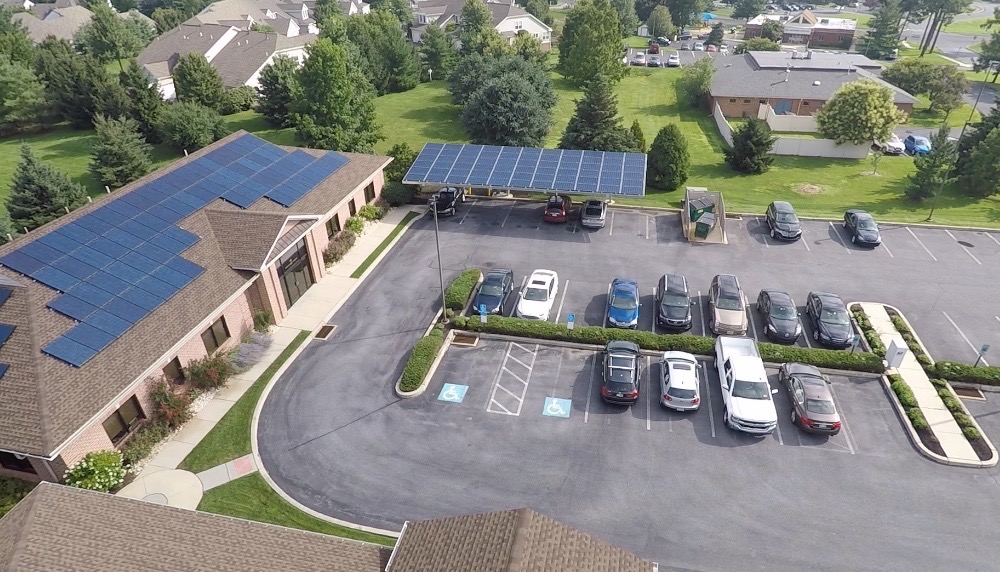Australian blockchain tech is headed towards a wider rollout in the United States. Perth-based Power Ledger has completed a U.S. trial that it believes will set the stage for wider adoption of its P2P electricity trading platform in the country.
Power Ledger’s head of business development and sales Vinod Tiwari described the development as a significant milestone with the company reaching user acceptance in the competitive market.
“This provides a platform for us to launch our commercial deployments in the U.S. market,” Tiwari told pv magazine Australia.
In the trial, which Tiwari says demonstrated some of the key features of the company’s technology, Power Ledger’s blockchain-enabled xGrid platform was used by APN to trade 43 MWh of solar power generated from the rooftop its headquarters in Pennsylvania with two neighbouring grid participants. The trial resulted in a 17% renewable energy mix for purchasers, which were able to access renewable energy at rates 5% lower than the grid rate.
Power Ledger’s xGrid platform utilised APN’s existing hardware, integrating with their distribution system, customer electricity meters and the inverters at the rooftop array. It was first time the tech startup’s P2P energy trading platform was deployed in the United States and participating in the largest U.S. wholesale electricity market – the PJM Interconnection.
“What we demonstrated in the APN project were features like real time measurement, verification and tracking of energy and also enabling simultaneous trading off that energy,” Tiwari said.
APN CEO Scott Helm said he was “delighted” with the results of the trial. “[We] will be looking to extend Power Ledger’s technology across our market.
“This trial has demonstrated the value proposition of blockchain technology, and we believe there will be significant interest from market participants,” Helm added.
A commercial deal has been struck off the back of the trial with the two end users that is expected to result in 350 MWh of energy, including 75 MWh of renewable energy, being traded.
“Great timing” says Tiwari
The timing of the successful trial could not be better, says Tiwari. Last month, U.S. Federal Energy Regulatory Commission handed down Order 2222, which lets distributed energy resources (DERs), like rooftop solar and storage, participate alongside traditional resources in wholesale energy markets. Heralded as historic, the ruling is expected to remove barriers for new technologies and open the U.S. market to more competition, hopefully resulting in more reliable grids and lower costs for consumers.
Order 2222 is particularly exciting for Power Ledger, says Tiwari, as it opens up new applications for the company’s technology .
APN and Power Ledger explore opportunities
Alongside APN, the Aussie tech company is now exploring additional jurisdictions were their technologies could be used in North America. One area they are exploring is loyalty P2P trading projects, where consumers can sell their rooftop electricity to their favourite retail brand in exchange for store vouchers.
Tiwari described the U.S. market as particularly ready for this type of application, but added the company is already looking to launch similar projects in other markets, including Australia.
Power Ledger is also exploring real-time tracking of renewable energy from off-site renewable generation for institutional customers, such as university campuses.
The capacity to see where energy is coming from and who is using it in real time, thanks to blockchain technology, is already proving lucrative for the company. In April, Power Ledger begun rolling out a project in France which is about the traceability of energy and empowering consumers to choose their energy mix. This blockchain-enabled application, Tiwari believes, will become increasingly relevant in the U.S. market.
“It will stand us out amongst other competitors in this process of commercialisation,” he says.
“A lot of customers who are committed to RE100-type of programs, large industrial and commercial [projects], they are interested now in not just buying renewable energy certificates, they are also looking that at any given instance they are supplied green energy. So, this feature will be extremely useful feature that we hope to unlock in the U.S. market through APN.”
Understanding not only where blockchain technology can be used, but where it is relevant to market needs has been at the core of the company’s global success, according to Tiwari.
“Power Ledger hasn’t been a company that has gone out looking for deployment [applications for] blockchain technology but is responding to the transformation of energy markets and blockchain happens to be the best technology that responds to that transforming energy market requirements.”
This content is protected by copyright and may not be reused. If you want to cooperate with us and would like to reuse some of our content, please contact: editors@pv-magazine.com.









By submitting this form you agree to pv magazine using your data for the purposes of publishing your comment.
Your personal data will only be disclosed or otherwise transmitted to third parties for the purposes of spam filtering or if this is necessary for technical maintenance of the website. Any other transfer to third parties will not take place unless this is justified on the basis of applicable data protection regulations or if pv magazine is legally obliged to do so.
You may revoke this consent at any time with effect for the future, in which case your personal data will be deleted immediately. Otherwise, your data will be deleted if pv magazine has processed your request or the purpose of data storage is fulfilled.
Further information on data privacy can be found in our Data Protection Policy.